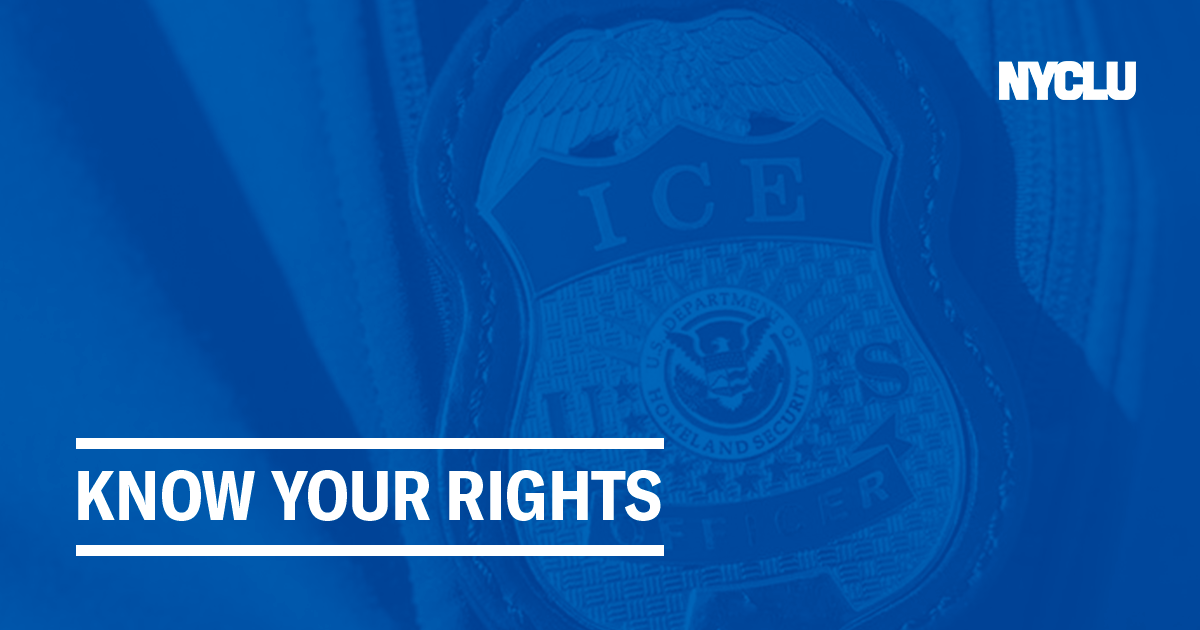Know Your Rights: Students in Higher Education & the First Amendment
As bold as the spirit of New York, we are the NYCLU.
Donate
© 2024 New York
Civil Liberties Union
Civil Liberties Union

The information below explains your rights when you are in contact with immigration enforcement officers in New York State. It is not intended to cover encounters with immigration authorities at border crossings, international airports, or other ports of entry into the United States.
Remember, what you say to immigration officers can be used against you in court, and it can give immigration officers a reason to arrest you. So make sure to read this information and keep it handy as you travel across the state.
If you feel that your rights have been violated during an interaction with an immigration officer, please call your local NYCLU office.
This KYR is not a replacement for legal advice.
Updated October 2019
